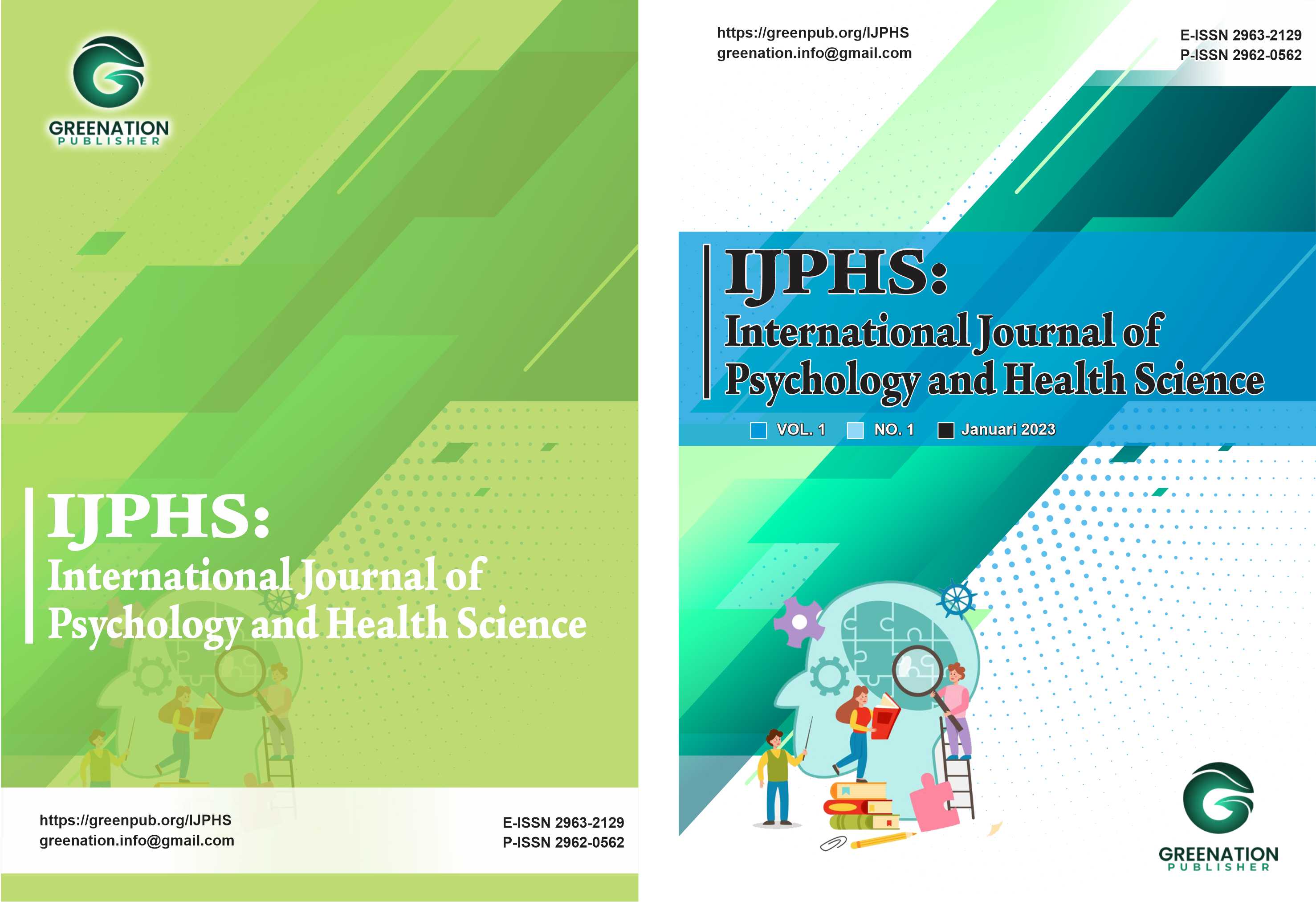Mini Review: Work-Life Balance, Psychological Structure, Employee Resilience, and Organization Commitment to Employee Wellbeing
Human Resource Management
DOI:
https://doi.org/10.38035/ijphs.v1i2.208Keywords:
Keywords: Work-Life Balance; Psychological Structure; Employee Resilience; Organizational Commitment; Employee well-being.Abstract
The purpose of this study is to find out what factors can influence the occurrence of employee welfare in the company, this article aims to examine and synthesize literature studies related to attitudes, Work-Life Balance; Psychological Structure; Employee Resilience; Organizational Commitment to behavioral events as well as to see the results of the research variables to be reviewed and whether there is influence between one variable and other variables partially and/or simultaneously. This study uses a literature review by looking for references related to variables from several international articles from science direct. This study provides an overview of the articles obtained by describing the influence between variables. The results of the research show that several variables influence the evidence of exposure in the matrix. The study of employee welfare in this literature summary article explicitly focuses on supporting variables that can accelerate employee welfare efficiently within a company, namely Work-Life Balance, Psychological Structure, Employee Resilience, and Organizational Commitment. The findings from the research are the formation of a new research framework that has not previously existed in previous studies.
References
Aguiar-Quintana, T., Nguyen, H., Araujo-Cabrera, Y., & Sanabria-Díaz, J. M. (2021). Do job insecurity, anxiety and depression caused by the COVID-19 pandemic influence hotel employees’ self-rated task performance? The moderating role of employee resilience. International Journal of Hospitality Management, 94(January). https://doi.org/10.1016/j.ijhm.2021.102868
Cahill, K. E., McNamara, T. K., Pitt-Catsouphes, M., & Valcour, M. (2015). Linking shifts in the national economy with changes in job satisfaction, employee engagement and work-life balance. Journal of Behavioral and Experimental Economics , 56, 40–54. https://doi.org/10.1016/j.socec.2015.03.002
Dai, Y. De, Zhuang, W. L., & Huan, T. C. (2019). Engage or quit? The moderating role of abusive supervision between resilience, intention to leave and work engagement. Tourism Management, 70(May 2017), 69–77. https://doi.org/10.1016/j.tourman.2018.07.014
Denston, A., Martin, R., Fickel, L., & O’Toole, V. (2022). Teachers’ perspectives of social-emotional learning: Informing the development of a linguistically and culturally responsive framework for social-emotional wellbeing in Aotearoa New Zealand. Teaching and Teacher Education, 117, 103813. https://doi.org/10.1016/j.tate.2022.103813
Fudge, M., Ogier, E., & Alexander, K. A. (2023). Marine and coastal places: Wellbeing in a blue economy. Environmental Science and Policy, 144, 64–73. https://doi.org/10.1016/j.envsci.2023.03.002
Huo, M., & Jiang, Z. (2023). Work – life conflict and job performance?: The mediating role of employee wellbeing and the moderating role of trait extraversion. Personality and Individual Differences Journal, 205(February).
Jena, L. K., Pradhan, S., & Panigrahy, N. P. (2018). Pursuit of organisational trust: Role of employee engagement, psychological well-being and transformational leadership. Asia Pacific Management Review, 23(3), 227–234. https://doi.org/10.1016/j.apmrv.2017.11.001
Kaya, B., & Karatepe, O. M. (2020). Attitudinal and behavioral outcomes of work-life balance among hotel employees: The mediating role of psychological contract breach. Journal of Hospitality and Tourism Management, 42(April 2019), 199–209. https://doi.org/10.1016/j.jhtm.2020.01.003
Kebu, H., Berisso, O., & Mulugeta, M. (2023). Drivers of migration and determinants of wellbeing among internal youth migrants in Ethiopia: Towns along Addis Ababa –adama route in focus. Heliyon, 9(3), e13780. https://doi.org/10.1016/j.heliyon.2023.e13780
Ly, B. (2023). Green HRM and eco-friendly behavior in Cambodian public organizations?: The mediation of organizational commitment. Environmental Challenges, 10(November 2022), 100674. https://doi.org/10.1016/j.envc.2022.100674
McLean, G., AlYahya, M., Barhorst, J. B., & Osei-Frimpong, K. (2023). Examining the influence of virtual reality tourism on consumers’ subjective wellbeing. Tourism Management Perspectives, 46(February), 101088. https://doi.org/10.1016/j.tmp.2023.101088
Na-Nan, K., Kanthong, S., & Joungtrakul, J. (2021). An empirical study on the model of self-efficacy and organizational citizenship behavior transmitted through employee engagement, organizational commitment and job satisfaction in the thai automobile parts manufacturing industry. Journal of Open Innovation: Technology, Market, and Complexity, 7(3), 170. https://doi.org/10.3390/joitmc7030170
Niswaty, R., Wirawan, H., Akib, H., Saggaf, M. S., & Daraba, D. (2021). Investigating the effect of authentic leadership and employees’ psychological capital on work engagement: evidence from Indonesia. Heliyon, 7(5), e06992. https://doi.org/10.1016/j.heliyon.2021.e06992
Noesgaard, M. S., & Jørgensen, F. (2023). Building organizational commitment through cognitive and relational job crafting. European Management Journal, December 2022. https://doi.org/10.1016/j.emj.2023.01.002
Paek, S., Schuckert, M., Kim, T. T., & Lee, G. (2015). Why is hospitality employees’ psychological capital important? The effects of psychological capital on work engagement and employee morale. International Journal of Hospitality Management, 50, 9–26. https://doi.org/10.1016/j.ijhm.2015.07.001
Rabiul, M. K., Promsivapallop, P., Al Karim, R., Islam, M. A., & Patwary, A. K. (2022). Fostering quality customer service during Covid-19: The role of managers’ oral language, employee work engagement, and employee resilience. Journal of Hospitality and Tourism Management, 53(September), 50–60. https://doi.org/10.1016/j.jhtm.2022.09.002
Rishworth, A. (2022). Wellbeing , Space and Society Who is responsible for wellbeing?? Shifting care responsibilities in the Canadian landscape?: The case of state-employer interactions. Wellbeing, Space and Society, 3(September 2021), 100087. https://doi.org/10.1016/j.wss.2022.100087
Ruotsalainen, S., Elovainio, M., Jantunen, S., & Sinervo, T. (2023). The mediating effect of psychosocial factors in the relationship between self-organizing teams and employee wellbeing?: A cross-sectional observational study. International Journal of Nursing Studies, 138, 104415. https://doi.org/10.1016/j.ijnurstu.2022.104415
Winata, F., & McLafferty, S. L. (2023). Therapeutic landscapes, networks, and health and wellbeing during the COVID-19 pandemic: A mixed-methods study among female domestic workers. Social Science and Medicine, 322(July 2022), 115803. https://doi.org/10.1016/j.socscimed.2023.115803
Xu, J., & Smyth, H. (2022). The ethics of care and wellbeing in project business: from instrumentality to relationality. International Journal of Project Management, 41(1), 102431. https://doi.org/10.1016/j.ijproman.2022.11.004
Downloads
Published
Issue
Section
License
Authors who publish their manuscripts in this journal agree to the following conditions:
- The copyright on each article belongs to the author(s).
- The author acknowledges that the International Journal of Psycology and Healt Science (IJPHS) has the right to be the first to publish with a Creative Commons Attribution 4.0 International license (Attribution 4.0 International (CC BY 4.0).
- Authors can submit articles separately, arrange for the non-exclusive distribution of manuscripts that have been published in this journal into other versions (e.g., sent to the author's institutional repository, publication into books, etc.), by acknowledging that the manuscript has been published for the first time in the IJPHS.





















